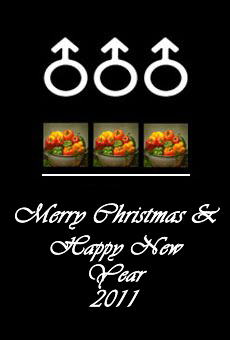Posted by Jyoti Manandhar | Posted in | Posted on 2:21 AM
Teej

Dancing, folk songs and the red colour of women’s wedding saris dominate the days of Teej, a Hindu festival celebration that combines sumptuous feasts as well as rigid fasting. Significant of the heavenly occasion when Parvati, daughter of the King of Himalayas, won over Lord Shiva after severe meditation and fasting, Teej is a three days long festival. Dancing, folk songs and the colour red dominate the Hindu festival of womanhood. On the first day, mother gift their daughters with deliciously prepared food and clothing prior to the day of fasting. At midnight, guarded over by women searching the blessings of the Lord for the long life, health and happiness of their spouse. Unmarried women take the fast in the belief of attaining a good husband. During the day, women visit Shiva temples especially the Temple of Pashupatinath. Women dress in the auspicious red colour and proceed in groups, singing and dancing on the street leading to the temples. At Pashupatinath temple women circumambulate the Lingam the phallic symbol of the lord, offering flowers, sweets and coins. The fast is broken on the next day after a prayer ceremony conducted by the priest. The third day of the festival is Rishi Panchami. Women pay homage to various deities and bathe with red mud found on the roots of the sacred Datiwan bush, along with its leaves. This act of purification is the final ritual of Teej, after which women are considered absolved from all sins. The austerity of the festival is dissolved in the bonding that women share as they come together in prayer.
Gai Jatra
The festival of “Gai Jatra” has its roots in the ancient ages when people worshipped Yamaraj-The God of Death. It is believed that the cow, revered as a holy animal by Hindus, helps departed souls on their journey into the after world. The festival is celebrated in different forms in the valley, either individually or together in processions. Young boys are dressed as cows and mark the beginning of the procession and are accompanied to traditional music. This is also an occasion when Open Street comedies are performed and people are entertained to satire on the ills of the political, social, and economical systems prevalent in the society.
Janai Purnima
Janai Purnima is the day when Hindu men tie a sacred thread called the janai across their torso, worn as a symbol of consciousness and complete control of body, speech, and mind after having passed boyhood. This full moon day also sees devotees at holy rivers taking ritual baths. Priests at temples or while visiting homes tie sacred threads on the wrists of men, women and children as a mark of protection against evil. Newars from the valley celebrate the festival as Gunhi Punhi where Kwati, a soup made from nine different beans is religiously cooked in all homes. A pilgrimage to Gosainkunda, the mountain lake at the base of the Himalayas is considered extremely auspicious. Traditional faith healers called Jhankris perform symbolic dances to throbbing drumbeats all day and night.
Gai Jatra
The festival of “Gai Jatra” has its roots in the ancient ages when people worshipped Yamaraj-The God of Death. It is believed that the cow, revered as a holy animal by Hindus, helps departed souls on their journey into the after world. The festival is celebrated in different forms in the valley, either individually or together in processions. Young boys are dressed as cows and mark the beginning of the procession and are accompanied to traditional music. This is also an occasion when Open Street comedies are performed and people are entertained to satire on the ills of the political, social, and economical systems prevalent in the society.
Janai Purnima

Janai Purnima is the day when Hindu men tie a sacred thread called the janai across their torso, worn as a symbol of consciousness and complete control of body, speech, and mind after having passed boyhood. This full moon day also sees devotees at holy rivers taking ritual baths. Priests at temples or while visiting homes tie sacred threads on the wrists of men, women and children as a mark of protection against evil. Newars from the valley celebrate the festival as Gunhi Punhi where Kwati, a soup made from nine different beans is religiously cooked in all homes. A pilgrimage to Gosainkunda, the mountain lake at the base of the Himalayas is considered extremely auspicious. Traditional faith healers called Jhankris perform symbolic dances to throbbing drumbeats all day and night.
.jpg)






Comments (0)
Post a Comment